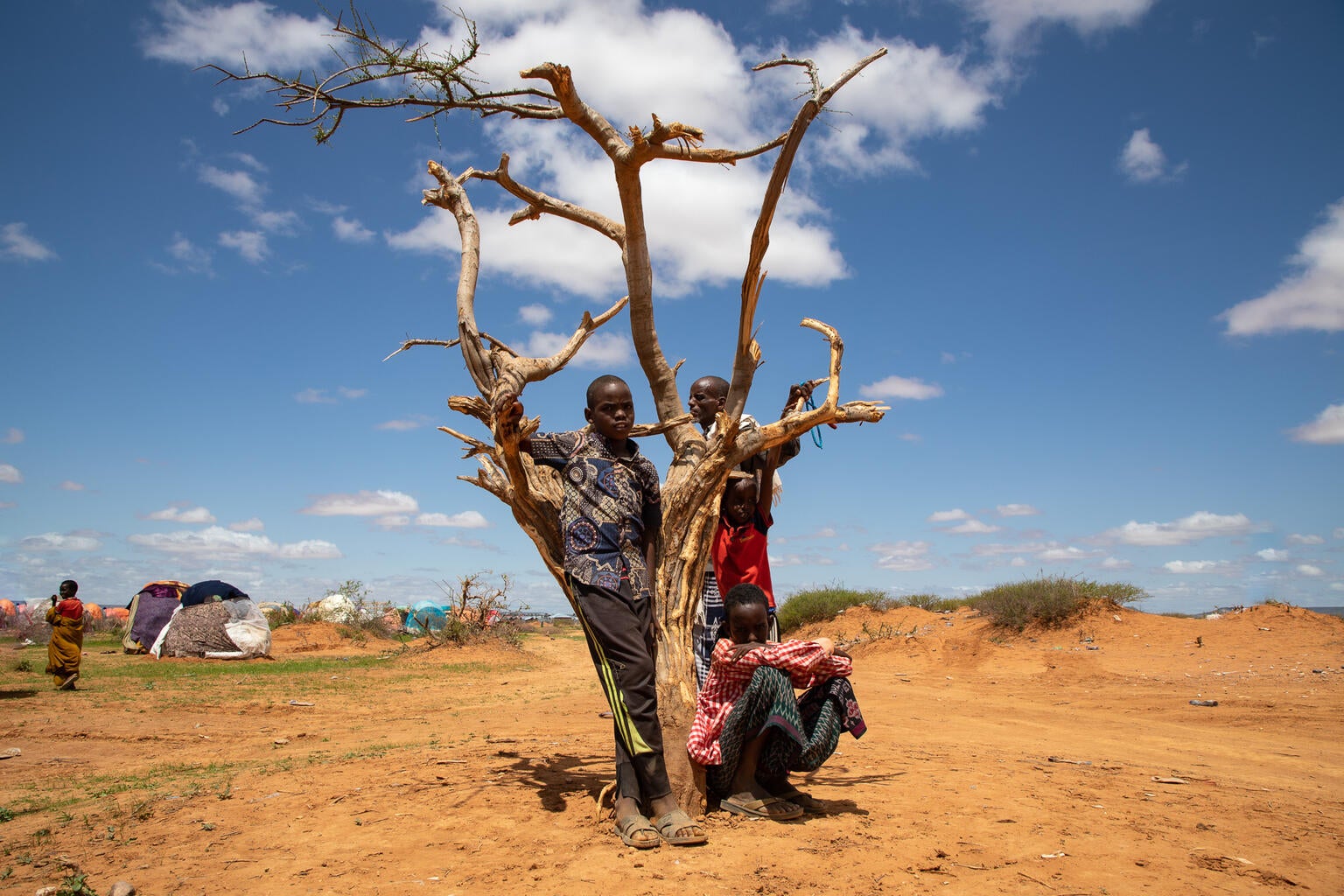Once a country that relied on the main rainy season for agricultural production, Ethiopia has been severely impacted by the drought. Without the rain, harvests are ruined, water sources run dry and children are left dependant on food aid for survival.
The drought is pushing communities to the brink; with chronic food shortages, malnutrition is on the rise.
See what the worst drought in decades means for children and how UNICEF is delivering life-saving supplies.
Malnutrition is soaring
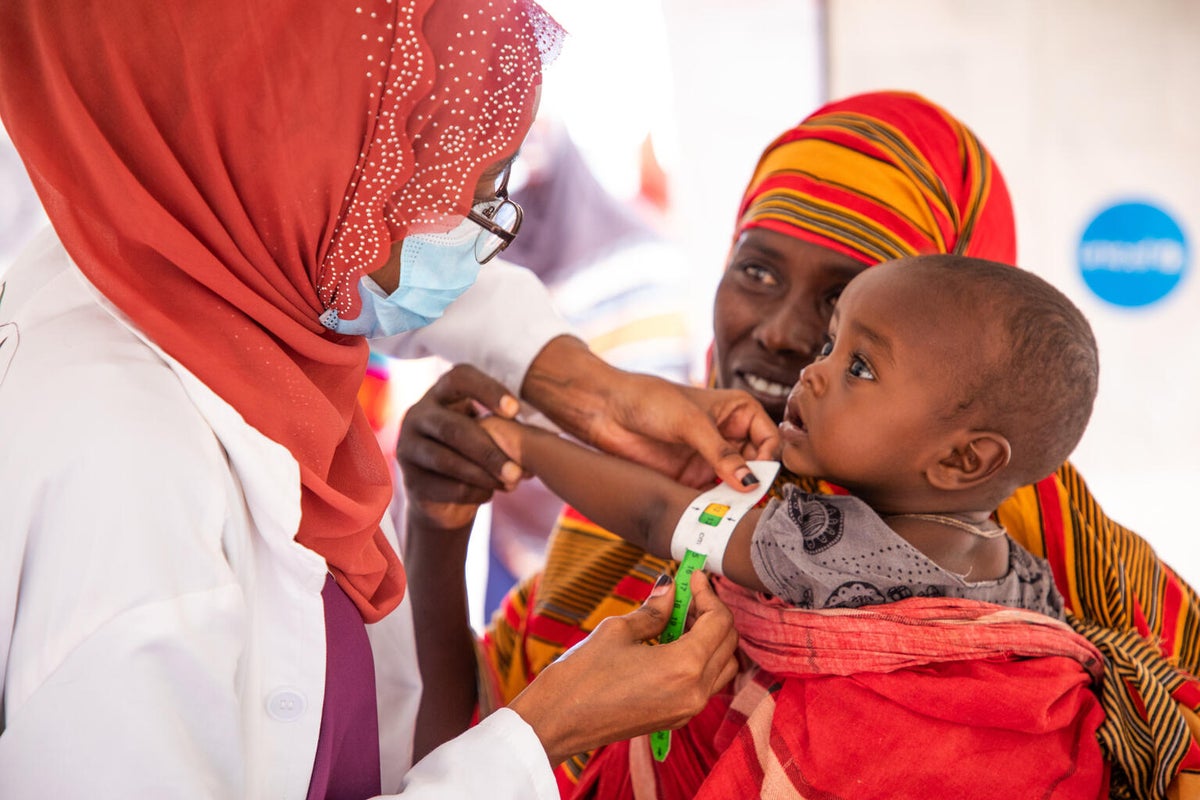
As food becomes desperately scarce, parents are struggling to give their children enough nutritious meals. It's a particularly dangerous time for young children - if they don't get the essential nutrients they need in this critical stage of development, they could be left stunted and feel the effects for the rest of their lives.
The drought is pushing malnutrition up for children and their families at an alarming rate. In Ethiopia, admission rates for treatment of severe acute malnutrition for children under five in drought affected areas, increased 15 per cent in just one year.
“Not only are we facing a malnutrition crisis, the lack of clean water is also further exacerbating the situation of children and women,” says UNICEF Executive Director Catherine Russell during her last visit to Ethiopia in April.
In response, UNICEF rolled out the ‘Find and Treat’ campaign to support early detection and management of severe acute malnutrition.
Lost education will impact children's lives for years to come
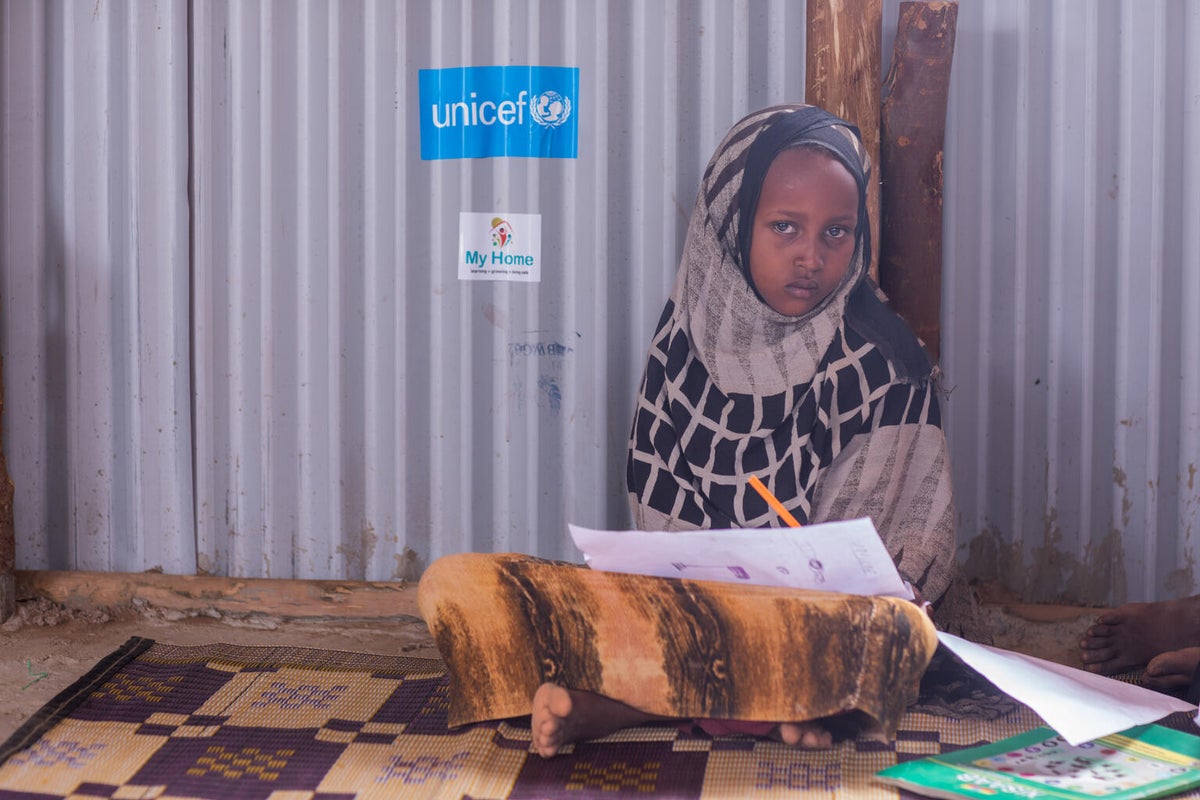
Almost 650,000 children are out of school due to the drought, with more than 2,000 schools closed due to lack of water. Many children drop out because they have to travel long distances in search of food and water, or to look after other children while their caregivers try and find water for their families and cattle.
Our teams work to reach children with education, no matter what. As of March 2022, we have reached more than 101,000 children with education across emergency-affected regions in Ethiopia.
“We have to remember that behind every statistic, there is a child with the same hopes and dreams as children everywhere – and the same right to reach their full potential,” says Ms. Russell.
You can make sure no child is left behind by crisis or poverty by donating today.
Animals are withering away
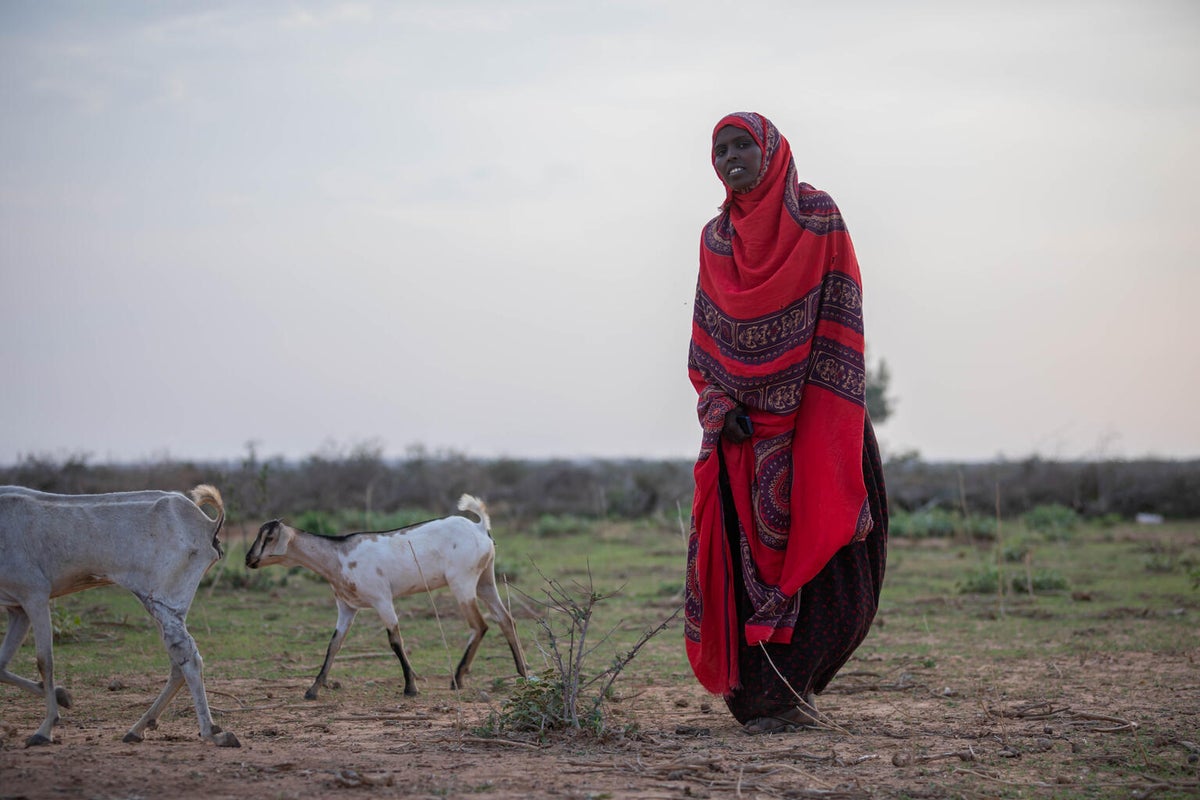
Kahiya, a mother of five children, leads her goats to find pasture in a zone where drought has severely affected communities. She lost 25 cattle. “We hope the rain will come soon and our animals get something to eat,” she says.
The impact of the drought is devastating for families like Kahiya’s. As grazing lands disappear and livestock wither away, those who rely on agriculture to make a living and feed their families are at very serious risk.
“In Somali region, one of the worst hit drought areas in the country, I met children and families who have literally lost everything,” says Ms. Russel.
“Their livestock have died and as a result they have no source of income. They cannot feed their children and are on the move in search of food and water.”
UNICEF provided access to safe water supply to close to 535,000 people affected by drought and conflict through water trucking, rehabilitation and upgrades of water systems across the country in March 2022.
Travelling long distances for water
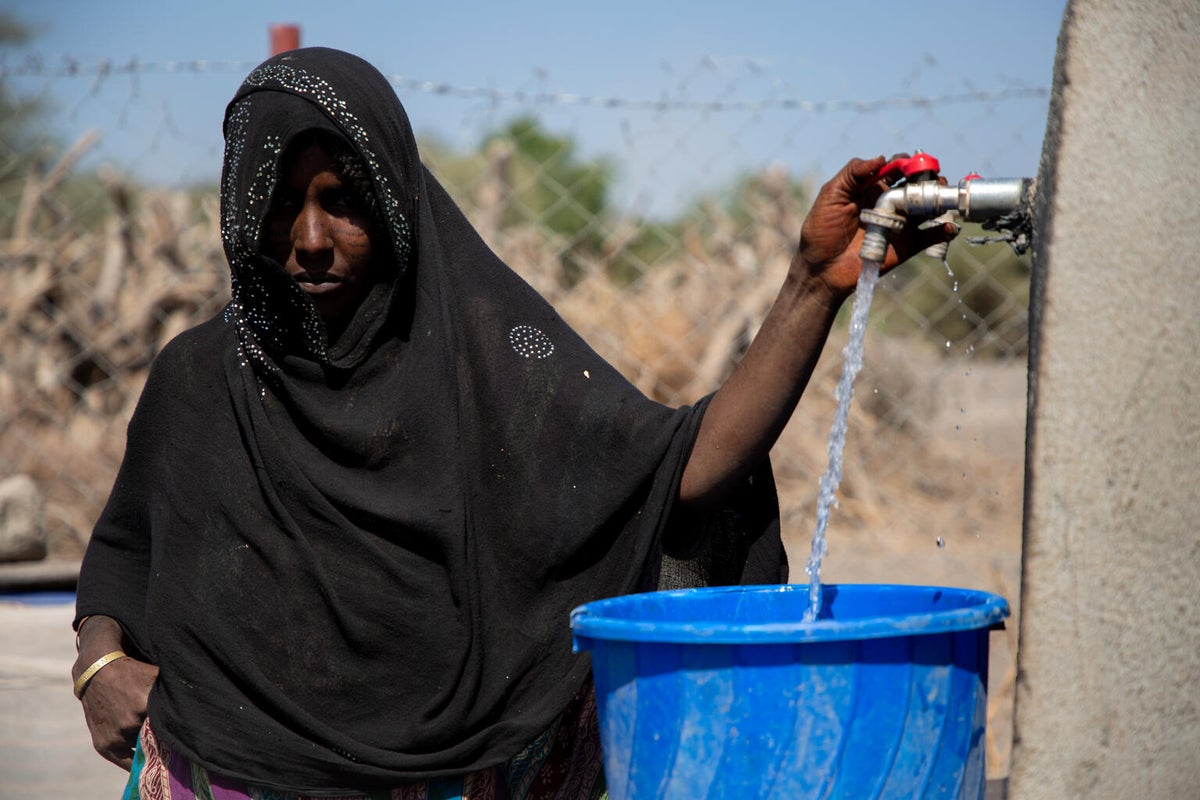
Fatuma lives 10 kilometres from the nearest water source and she spends an average of five or six hours a day on the road. When Fatuma is travelling, she leaves her four children with her mother.
“For five months now since the end of the rainy season, I leave every morning at dawn with my three donkeys to fetch water,” says Fatuma.
“Many women from all over the area come here to get water and from 10am the heat is very intense, so we must be quick.
Once the jerry cans are filled, I immediately take the road again. I pray every day that the rains will come in abundance.”
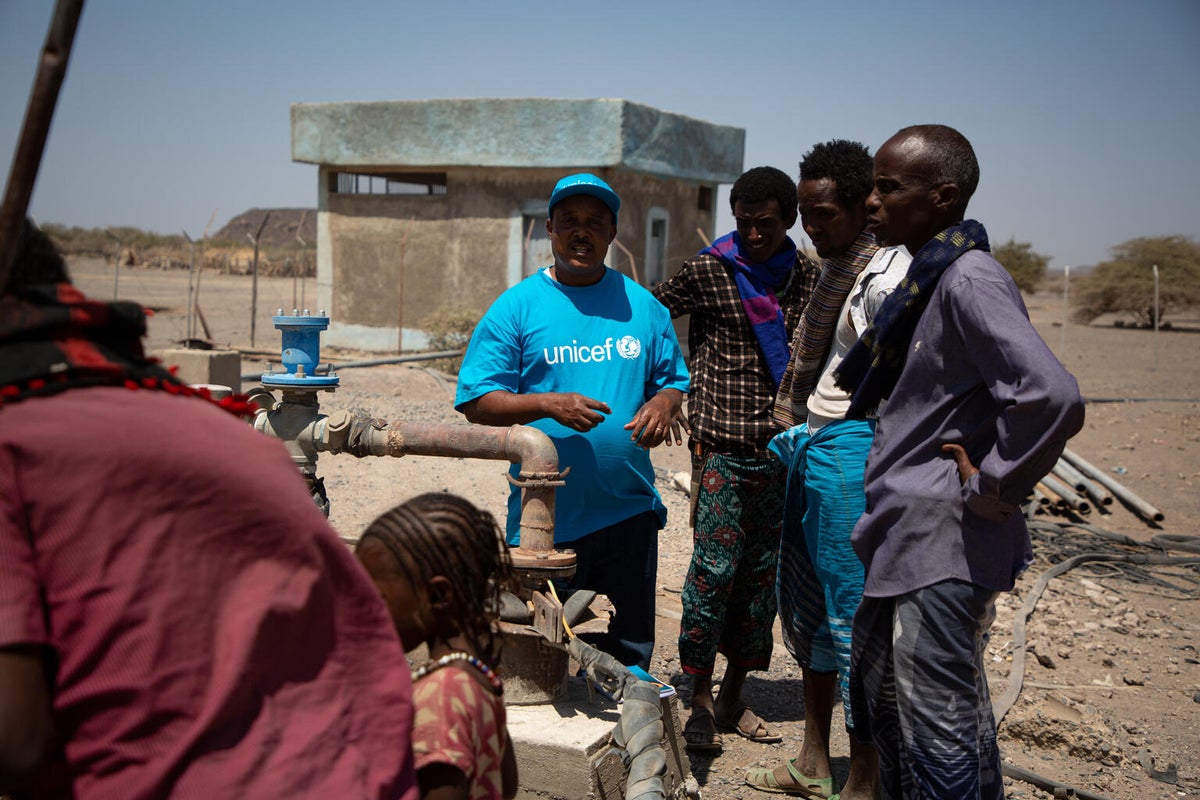
UNICEF supported the installation of a drinking water supply in the village where Fatuma travels every day. The borehole, powered by a solar panel system, distributes water to three points in the village, and also provides a water point for cattle.
Like Fatuma, an estimated 10,500 people rely on this drinking water system during the dry season.
Vaccinations are more important than ever
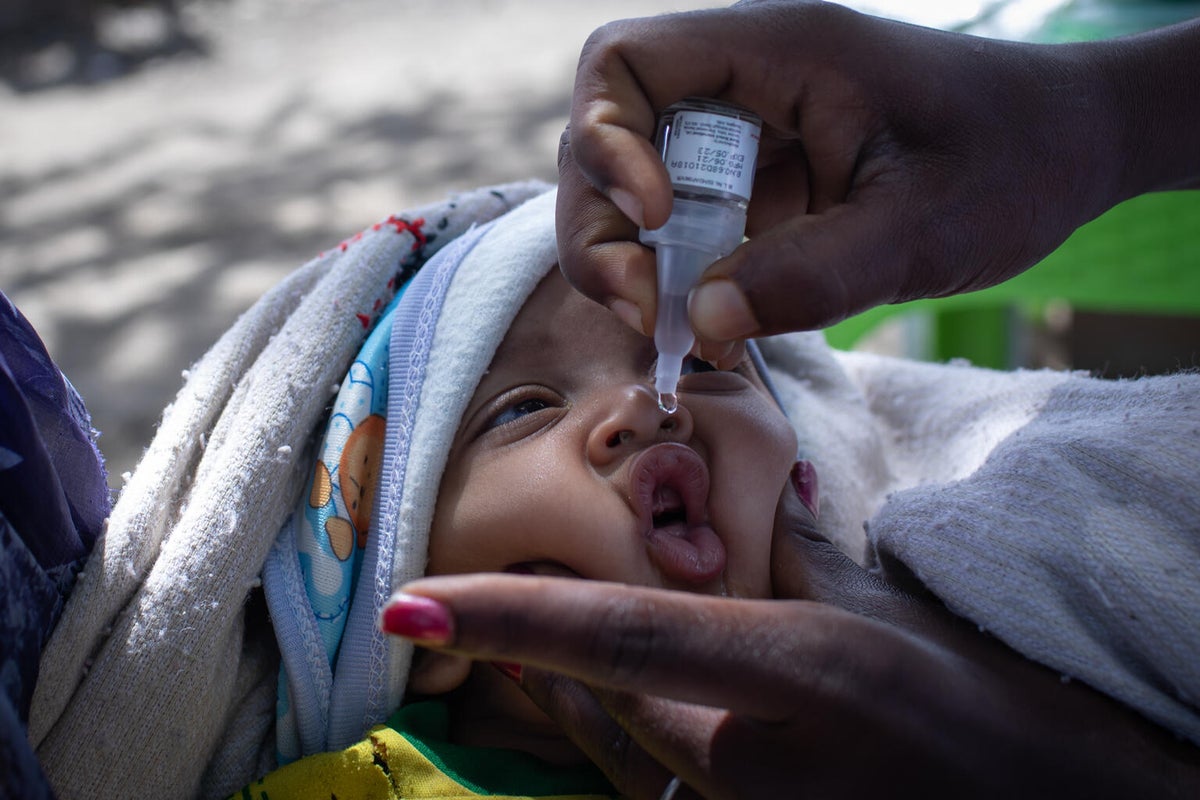
As children become malnourished, they are more susceptible to measles and its complications. “In Somali region, we have had reports of over 1,000 cases of measles with 16 confirmed deaths,” says Ms Russell.
UNICEF supported a measles vaccination campaign in Ethiopia’s Somali region in response to a recent outbreak. A total of 307,608 children under 10 years old were reached and vaccinated.
UNICEF is delivering emergency supplies on a massive scale
In response to the critical situation, UNICEF Ethiopia aims to reach an estimated 3.4 million people, including 1.4 million children, as part of our immediate response.
Our teams are rehabilitating and installing boreholes, emergency water trucking, treating severely malnourished children and providing education and child protection support.
We are also investing in climate-resilient solar powered water systems to help generations to come.
You can help children in crisis
UNICEF needs you now more than ever. Together we can reach children hit by the drought in Ethiopia and across the Horn of Africa. We can deliver life-saving nutrition, clean water and medical supplies, and we can give children a fair chance at a good life. Please give generously to make it possible.
Your donation means survival and hope for the world's most vulnerable children. It means everything.
Related articles
Stay up-to-date on UNICEF's work in Australia and around the world



